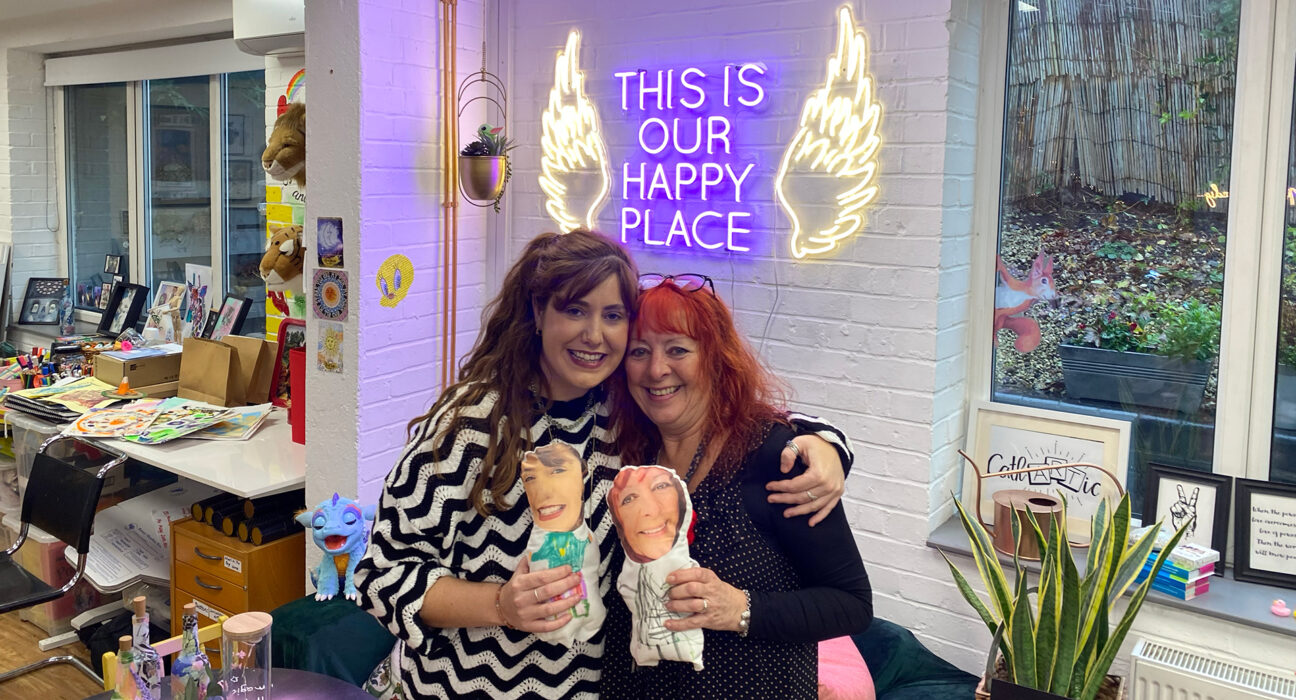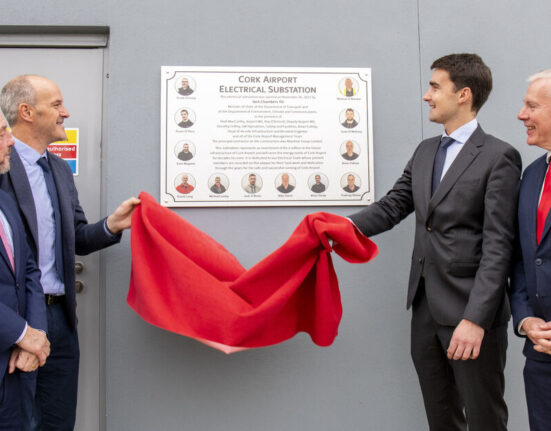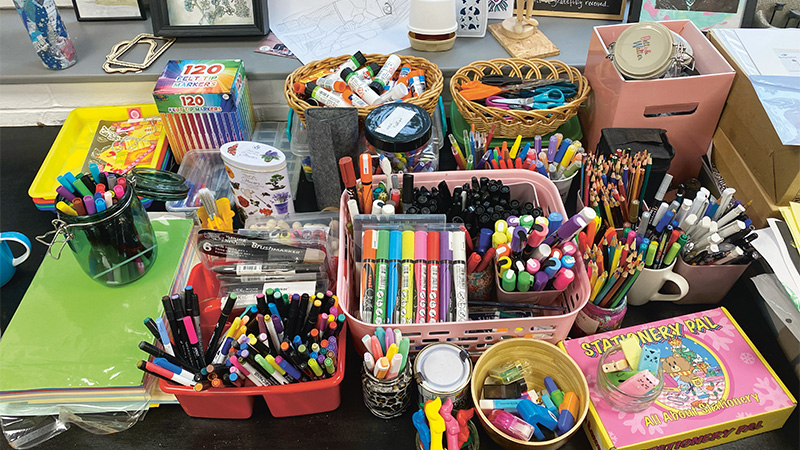
CathARTic’s premises are spread across two floors, with classes taking place on the lower level, which is accessible to wheelchair users and those with limited mobility. A mobile of hummingbirds greets you as you walk in, which Day and Todesco explain is a representation of service users who have sadly died.
The morning we visit there are two different classes taking place on the ground floor. On the right-hand side of the open-plan room, a group of seven young adults busily fill in a pumpkin outline with colourful seeds.
Charlotte, 21, has been coming to CathARTic for a couple of months. “Since coming here my behaviour has really improved,” she says, “I used to be a nightmare. Now I’m amazing and very well-behaved.”
While no one present seems to agree with her self-label, it’s clear the group are supportive of each other and there’s a lot of laughter around the table – a common theme during our visit.
Later on, the class for young adults with special educational needs and disabilities is engaged with a piece of creative technology, made possible by Big Issue Invest. A projector beams virtual balloons filled with paint onto the floor, which when touched by participants, splatter onto a virtual canvas. Everyone of all abilities can join in.
As well as these young adults, CathARTic also runs groups for a range of other communities. Some of these include displaced children from Ukraine – who have recently entered The Big Issue’s Christmas Cover competition – and workshops for people living with life-threatening illnesses.
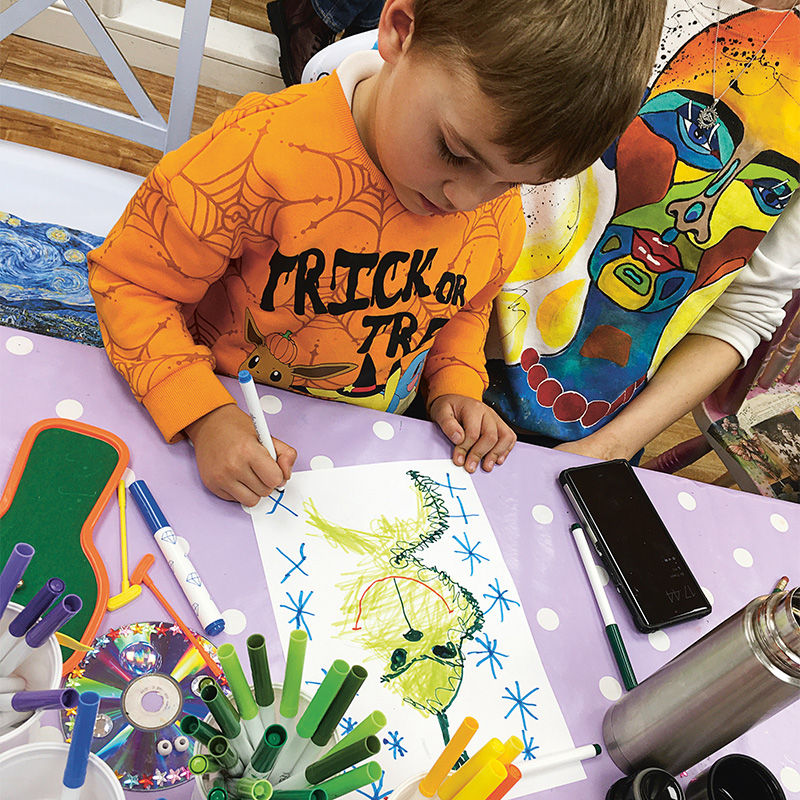
Freida, who attends the latter class, was introduced to CathARTic through the local Peace Hospice after she was asked if she’d like to take part in a bereavement workshop being run by Day and Todesco.
“After that finished they told me, we have other workshops that we run,” Freida explains. “And it was through that conversation that they told me about some of their other service users.
“They mentioned the name of one of the young people they work with, and it was a name I surprisingly recognised.”
Twenty years ago, Freida worked with children with autism, and through CathARTic has unexpectedly managed to reunite with 10 of these children, who are now adults.
“It’s been wonderful because it means I’ve got a link back to them,” she says warmly. “I’ve also got somewhere to go so I’m not lonely any more, and I’m able to express myself through art.”
Mandy, another member of the group agrees. “This is the only thing I come to,” she says. “Without it, I would just be at home all the time. Here, I don’t feel judged.”
Day explains, “This group of ladies come here to connect with one another. Peer-to-peer support is, we think, a really great thing we try to encourage. And when I say peer, that’s not necessarily age, but circumstances.”
CathARTic’s service users don’t pay to attend the sessions. The programmes are either commissioned by Hertfordshire County Council into individual care packages or funded through grants, donations or commissions.
“We want to ensure that there are no barriers to accessing our services,” Todesco says.
Todesco and Day first met while teaching at a school with a SEN (special educational needs) unit set up for young people with physical and neurological impairments to access mainstream education.
“We would support these young people in classes,” Todesco recalls, “and enable them to access as much as they possibly could from the lessons, presenting things in different ways to them that would aid their understanding.”
While Todesco and Day’s careers led them to an educational setting, both come from creative backgrounds. Before working in education, Day ran her own graphic design company while Todesco began her career in the film and TV industry.
“We had so many things in common, didn’t we?” Day smiles, turning to Todesco. “But our main thing was a passion for people.”
The pair decided to step away from the school in 2018 after a change in headship meant values that had previously been instilled around SEN were no longer there.
“I knew there was funding,” Day says. “And I was fighting for absolutely everything. But under this new leadership, it never came our way.”
“We thought, we have to do something different,” Todesco continues, “And we worked out, we wanted to work creatively with people.”
“From there we built connections with the county council, and the social services commissioners, working with both children and adult services. Now we work with hospices too.”
They now support over 320 people a year, from their youngest service user, a nine-month-old to their oldest, aged 101.
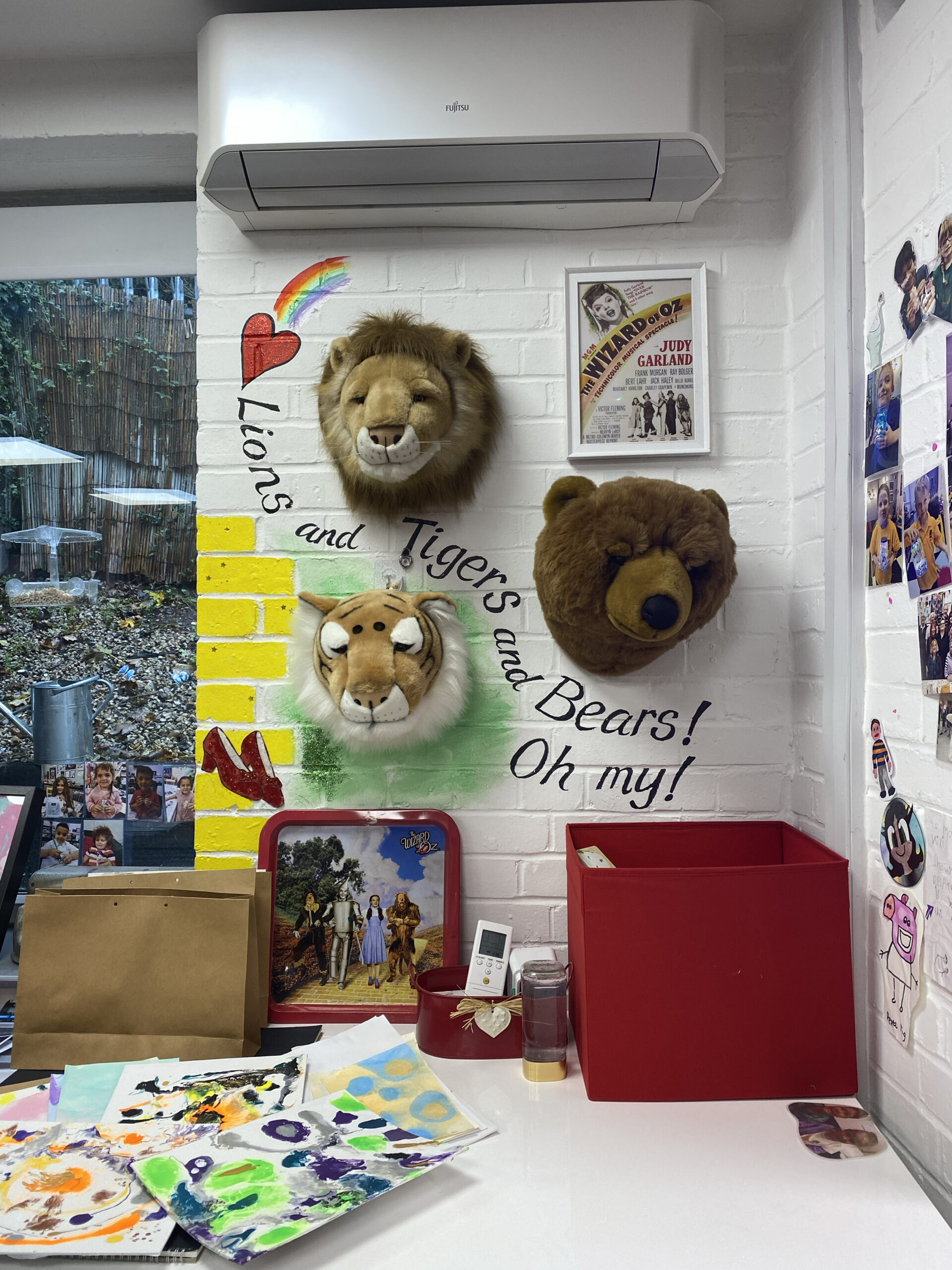
“We have what I call an old fashioned almost community centre here,” Day says. “Where you’re working with all age ranges from different backgrounds, but actually, there is a real intergenerational mix across all our programmes.”
With the loan from Big Issue Invest, CathARTic have been able to upgrade facilities to create an accessible space for all of their service users.
“Because of the investment from Big Issue Invest we’ve been able to build our new accessible bathroom, which includes a changing bed, hoist and Closomat toilet. This increases our service users’ independence,” Todesco explains.
“Most teenagers and young people love to come to a youth group independently, without their parents or carers,” she continues. “Now with the toilet facilities, [we] can assist with any personal care needs in a dignified, safe and independent way. It also gives complete respite for parents and carers.”
We’re also shown a sensory room filled with colourful lights and cushions where clients with autism can find comfort if they need to step away from the art activities at any time.
Alongside their group workshops, Todesco and Day work as a special commission through social services, where they’ve been asked to work two-to-one with people with higher needs either emotionally, physically or medically.
“This gives them that opportunity to have a nurturing and fully supportive environment where all their needs are catered for,” Day explains.
“One young lady who came to work with us actually grew up in the care system,” Todesco recalls. “When she came to us, she wasn’t able to read or write. But we worked with her for about three-and-a-half years, and she actually completed a qualification with us, which was the equivalent of a low-grade GCSE. It was the qualification to go on to her CV.”
Day continues, “We actually identified that we could creatively develop her skills with maths and handling money. So we did that and she went on to get a mainstream employment position with Marks & Spencer, which she does 16 hours a week so it doesn’t impact her care package. But she’s also got that independence and that sense of achievement and purpose.”
It’s evident that CathARTic deeply impacts the lives of its service users. We meet Adhar, from the young adults with special educational needs and disabilities group, who tells us that “Wednesdays and Fridays are very good days” because he gets to come to CathARTic.

Photographed with his painting of a drum, Adhar calls the arts organisation his “happy place”. He’s recently completed his Bronze Arts Award, a national qualification that develops young people’s artistic abilities and is the equivalent of a low GCSE grade. He is now working to earn his Silver, which makes him feel “very proud”.
Todesco and Day’s natural empathy is on full display as we watch the groups in action. Speaking to them later on and asking why they evidently love what they do, Todesco simply responds, “We are just so privileged to work with some of the best of humanity.”
Learn more about CathARTic here
Big Issue Invest provides loan finance to social enterprises and charities, just like CathARTic, with a range of repayable finance options – from loans as small as £20,000 to larger investments of up to £3.5 million, as well as corporate mentoring and investment programmes designed for early-stage social businesses. If you think your organisation could benefit, find out more here
This article is taken from The Big Issue magazine, which exists to give homeless, long-term unemployed and marginalised people the opportunity to earn an income. To support our work buy a copy!
If you cannot reach your local vendor, you can still click HERE to subscribe to The Big Issue or give a gift subscription. You can also purchase one-off issues from The Big Issue Shop or The Big Issue app, available now from the App Store or Google Play

